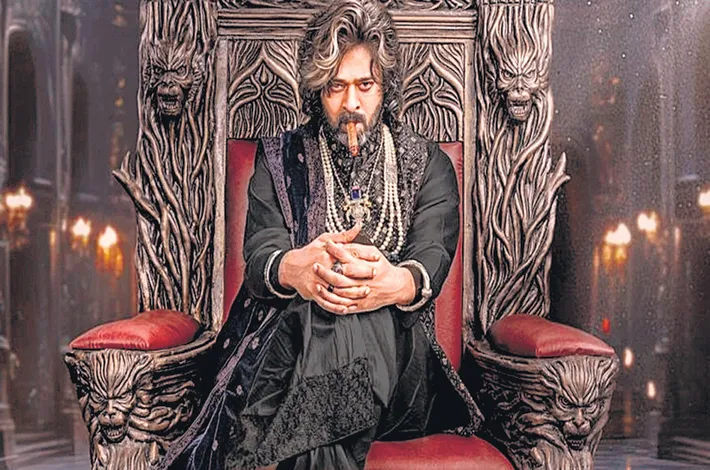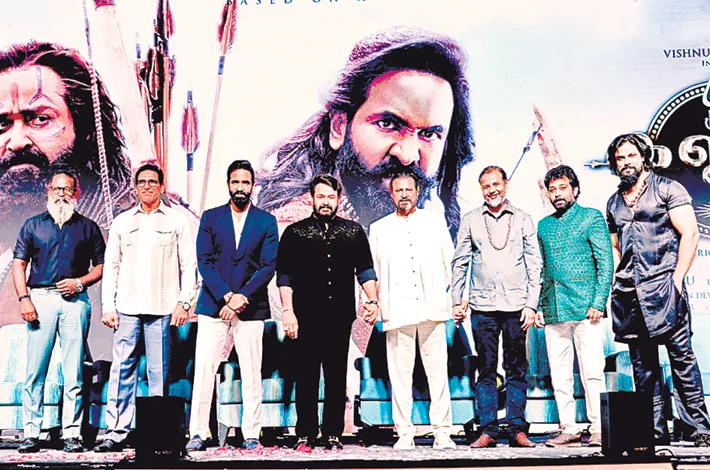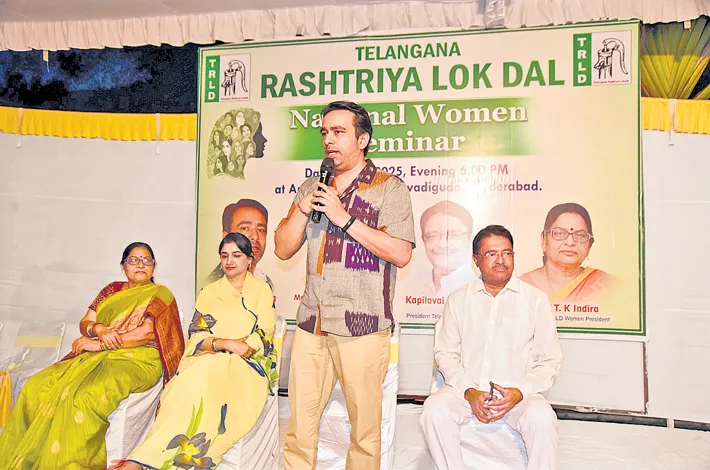The tale of Tea estate manager
09-06-2025 12:00:00 AM

The Brahmaputra River flowed like a restless serpent through Assam, its waters glinting under the pale moonlight. In the small town of Tezpur, nestled along its banks, a sense of unease had settled like morning mist. It began with the disappearance of Ranjit Das, a local tea estate manager known for his quiet demeanor and meticulous habits. His absence was a crack in the town’s rhythm, and whispers of foul play spread faster than the river’s current.
Inspector Priya Bordoloi stood at the edge of the Das family’s sprawling estate, her boots sinking into the damp earth. The air was heavy with the scent of tea leaves and impending rain. At thirty-two, Priya was a rising star in the Assam Police, her sharp mind tempered by a stubborn streak. She’d been called from Guwahati when the local police hit a dead end. Ranjit’s wife, Anjali, had reported him missing three days ago, and the only clue was a cryptic note found in his office: “The river keeps its secrets.”
Priya’s flashlight swept over the estate’s perimeter, where the tea bushes stretched into the darkness. The workers had been questioned, their faces etched with fear and suspicion. Ranjit was well-liked, they said, but he’d been acting strange—distant, preoccupied, seen wandering near the river at odd hours. Priya’s gut told her this wasn’t a simple case of a man walking away from his life. Something darker lurked beneath Tezpur’s tranquil surface.
Her first lead came from a young worker named Bikash, who hesitated before admitting he’d seen Ranjit arguing with a stranger near the estate’s old banyan tree a week before he vanished. The man, Bikash said, had a scar across his left cheek and wore a cheap suit, out of place among the dusty paths of the tea gardens. Priya pressed for more, but Bikash clammed up, fear flickering in his eyes. “He’s not someone you cross, ma’am,” he muttered before slipping away.
The next morning, Priya visited the local market, where gossip flowed as freely as the river. An old woman selling betel nuts mentioned a name: Dhruv Saikia, a local businessman with a reputation for shady dealings. Word was, Ranjit had borrowed money from him to keep the estate afloat after a bad season. Dhruv was known to operate from a riverside warehouse, a place the townsfolk avoided after dusk. Priya’s instincts screamed that the scarred man and Dhruv were connected.
Under a sky bruised with storm clouds, Priya drove to the warehouse, her service revolver a comforting weight against her hip. The building loomed like a forgotten relic, its corrugated roof rusted and sagging. Inside, the air was thick with the stench of fish and something metallic—blood, perhaps. She found no one, but a ledger on a makeshift desk caught her eye. Flipping through it, she saw Ranjit’s name alongside sums of money far larger than a tea manager could repay. A noise—a faint shuffle—made her freeze. She turned, gun drawn, but the shadows were empty. Or so she thought.
That night, Priya’s phone buzzed with an anonymous tip: Check the riverbank near the old ferry ghat. She arrived at the desolate spot, where the Brahmaputra’s waters lapped hungrily at the shore. Her flashlight caught something glinting in the mud—a gold watch, engraved with Ranjit’s initials. Nearby, half-buried in the silt, was a bloodstained scarf. Her heart raced. This was no disappearance; it was murder.
The evidence pointed to Dhruv, but Priya needed more. She tracked him to a seedy bar in Tezpur’s underbelly, where he sat nursing a glass of country liquor. His scar was unmistakable, a jagged line across his cheek. Priya approached, her presence drawing curious glances. “Dhruv Saikia,” she said, voice steady. “We need to talk about Ranjit Das.”
Dhruv’s eyes narrowed, but he smirked. “Ranjit? Poor man got in over his head. Borrowed what he couldn’t repay. Maybe the river took him.” His tone was mocking, but Priya caught the flicker of unease. She leaned in, lowering her voice. “The river doesn’t keep secrets forever. I found his watch. And the blood.”
Dhruv’s smirk faded. He stood abruptly, muttering about a meeting, and slipped out the back. Priya followed, weaving through Tezpur’s narrow alleys as rain began to fall. Dhruv was fast, but she was relentless, her boots splashing through puddles. He led her to the riverbank, where a small boat bobbed in the current. As he climbed aboard, Priya shouted, “Stop, or I shoot!”
He froze, hands raised, but his eyes darted to the shadows. Before Priya could react, a figure lunged from the darkness—a man with a knife, his face obscured. Priya dodged, the blade grazing her arm. Pain flared, but she fired a warning shot, sending the attacker scrambling into the night. Dhruv, seizing the moment, shoved the boat into the river and leaped aboard. Priya fired again, but the bullet struck the hull, and the current carried him away.
Back at the station, Priya pieced together the fragments. The ledger, the watch, the scarf—all pointed to Dhruv orchestrating Ranjit’s death to silence a debtor who knew too much about his operations. The attacker at the riverbank was likely a hired thug, protecting Dhruv’s escape. But the Brahmaputra had one more secret to yield. The next morning, fishermen found a body snagged in the reeds downstream. It was Ranjit, his throat slit, his face frozen in a silent scream.
The discovery galvanized Priya. She coordinated with the river police, who intercepted Dhruv’s boat near Dibrugarh. He was arrested, the ledger and bloodstained clothes found aboard sealing his fate. The scarred man, however, remained a ghost, a loose end that gnawed at Priya as she filed her report.
Tezpur returned to its quiet rhythm, but Priya knew the river still held secrets. As she stood by the Brahmaputra, its waters churning under a blood-red sunset, she felt the weight of the case lift, but only slightly. The scarred man was out there, and Assam’s shadows were long and deep. She’d find him. Eventually.








